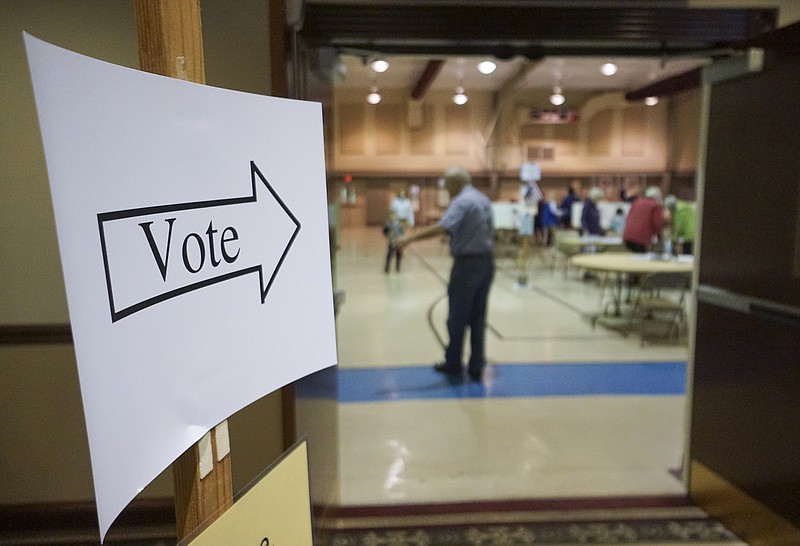Illegal immigration and the Southern border wall may be good conversation starters when it comes to presidential support for Donald Trump, but it's the economy that is proving to bring voters to the polls for the New York businessman.
The voters hear the economic news - 5.5 percent unemployment - but it doesn't resound with them, even if they know that figure should be pointing toward a stable job market. They've got a job, sure, but it's not the job they want. Not forever, anyway. And the prospects for advancement seem few if any.
They hear by the grapevine how the "big bosses" are being taken care of, though. They're getting fat raises and bonuses and the companies are doing well, while the people doing the day to day work are having it stuck to them. Between 1999 and 2014, they may have heard, United States corporate profits after taxes rose by about 250 percent. Meanwhile, for example, annual median household income in Michigan fell about $14,000 over the same period.
Their take-home pay covers the bills, but just barely. There's never enough money for that kitchen re-do or the really nice vacation they've been wanting to take. And they hope against hope the HVAC doesn't go out or the roof start leaking. They have no savings to replace such big ticket items.
They hear inflation is low, but they wonder if the people who calculate that have checked food prices lately.
Their health care insurance, if they've got it, takes a bigger and bigger bite out of their paycheck each year. While they feel fortunate to get a 1 percent or 2 percent pay bump, their insurance premiums take an annual gallop. And there are bigger co-pays or deductibles that must be met before much of the coverage kicks in. It's about the same as paying everything out of pocket, they figure.
And they try not to think about these things because they're inherently good people, but it's repeatedly mind-numbing to them when they hear the president talk about "leveling the playing field" and "fairness" and "equitable pay." They've been working all their adult years, and it feels like somebody wants to take what they have and give it to people who don't work or have come here illegally.
That brings them to Trump, who wants "to make America great again." That sounds good because they remember the days when their fathers got annual raises, when each year was just a little bit better than the one before it, when so many jobs weren't sent overseas, when companies seemed like partners who took care of you until - and after - you retired.
It didn't matter that the former reality show host had backed Democrats, that he'd supposedly changed his mind on issues like abortion and Planned Parenthood, that he was crude on the stump, and that he hardly fit the mold of a Christian conservative. Phooey on all that.
Trump was a billionaire businessman, an outsider, someone who'd made money - lots of money - and was not part of the political class. He talked about America losing - losing on trade deals, losing on nuclear agreements, losing jobs. He was sick of America losing. Coincidentally, they were sick of losing, so all that sounded good.
He exuded strength, too. Russia and Iran and the Islamic State - he'd put them in their place. They agreed with him that the U.S. ought to quit being Mr. Weak, Wimpy Nice Guy and return to being thought of as the leader of the free world.
Trump's primary opponents - most of them, anyway - were the same, old politicians who'd kept the country in the same, old mess it had been in for years. They'd thought they were doing the right thing when they voted to put Republicans back in charge of the House and then the Senate, but nothing changed. They sure couldn't vote for a Democrat for president, but they were darned if they would support a Republican like the ones now in D.C.
Now that the one they've wished for is the odds-on favorite to win the Republican nomination, we hope what they wished for is what they get.
We hope, should he become the nominee and defeat one of the most vulnerable front-runners in recent Democratic Party history, that he does show strength to foreign bullies. We hope he does return the U.S. to an economic footing where middle- and lower-income Americans begin to see their lives improve. We hope he does find a workable solution to illegal immigration. We hope he does find a way to make "such great deals."
We hope all these voters concerned about their economic futures are right to have come out of the woodwork, off the roles of inactive voters, out of the other party to support such a brash outsider. We're skeptical because Trump hasn't been used to working for 318 million people. He's been used to people working for him. So we hope he knows - or will learn - how to make that transition.
